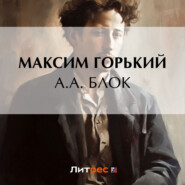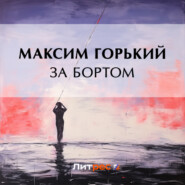По всем вопросам обращайтесь на: info@litportal.ru
(©) 2003-2025.
✖
The Man Who Was Afraid
Настройки чтения
Размер шрифта
Высота строк
Поля
When she finished singing, she looked haughtily about her, and seating herself by Foma’s side, clasped his neck with a firm and powerful hand.
“Well, was it a nice song?”
“It’s capital!” said Foma with a sigh, as he smiled at her.
The song filled his heart with thirst for tenderness and, still full of charming sounds, it quivered, but at the touch of her arm he felt awkward and ashamed before the other people.
“Bravo-o! Bravo, Aleksandra Sarelyevna!” shouted Ookhtishchev, and the others were clapping their hands. But she paid no attention to them, and embracing Foma authoritatively, said:
“Well, make me a present of something for the song.”
“Very well, I will,” Foma assented.
“What?”
“You tell me.”
“I’ll tell you when we come to town. And if you’ll give me what I like – Oh, how I will love you!”
“For the present?” asked Foma, smiling suspiciously. “You ought to love me anyway.”
She looked at him calmly and, after a moment’s thought, said resolutely:
“It’s too soon to love you anyway. I will not lie. Why should I lie to you? I am telling you frankly. I love you for money, for presents. Because aside from money, men have nothing. They cannot give anything more than money. Nothing of worth. I know it well already. One can love merely so. Yes, wait a little – I’ll know you better and then, perhaps, I may love you free of charge. And meanwhile, you mustn’t take me amiss. I need much money in my mode of life.”
Foma listened to her, smiled and now and then quivered from the nearness of her sound, well-shaped body. Zvantzev’s sour, cracked and boring voice was falling on his ears. “I don’t like it. I cannot understand the beauty of this renowned Russian song. What is it that sounds in it? Eh? The howl of a wolf. Something hungry, wild. Eh! it’s the groan of a sick dog – altogether something beastly. There’s nothing cheerful, there’s no chic to it; there are no live and vivifying sounds in it. No, you ought to hear what and how the French peasant sings. Ah! or the Italian.”
“Excuse me, Ivan Nikolayevich,” cried Ookhtishchev, agitated.
“I must agree with you, the Russian song is monotonous and gloomy. It has not, you know, that brilliancy of culture,” said the man with the side whiskers wearily, as he sipped some wine out of his glass.
“But nevertheless, there is always a warm heart in it,” put in the red-haired lady, as she peeled an orange.
The sun was setting. Sinking somewhere far beyond the forest, on the meadow shore, it painted the entire forest with purple tints and cast rosy and golden spots over the dark cold water. Foma gazed in that direction at this play of the sunbeams, watched how they quivered as they were transposed over the placid and vast expanse of waters, and catching fragments of conversation, he pictured to himself the words as a swarm of dark butterflies, busily fluttering in the air. Sasha, her head resting on his shoulder, was softly whispering into his ear something at which he blushed and was confused, for he felt that she was kindling in him the desire to embrace this woman and kiss her unceasingly. Aside from her, none of those assembled there interested him – while Zvantzev and the gentleman with the side whiskers were actually repulsive to him.
“What are you staring at? Eh?” he heard Ookhtishchev’s jestingly-stern voice.
The peasant, at whom Ookhtishchev shouted, drew the cap from his head, clapped it against his knee and answered, with a smile:
“I came over to listen to the lady’s song.”
“Well, does she sing well?”
“What a question! Of course,” said the peasant, looking at Sasha, with admiration in his eyes.
“That’s right!” exclaimed Ookhtishchev.
“There is a great power of voice in that lady’s breast,” said the peasant, nodding his head.
At his words, the ladies burst out laughing and the men made some double-meaning remarks about Sasha.
After she had calmly listened to these and said nothing in reply, Sasha asked the peasant:
“Do you sing?”
“We sing a little!” and he waved his hand, “What songs do you know?”
“All kinds. I love singing.” And he smiled apologetically.
“Come, let’s sing something together, you and I.”
“How can we? Am I a match for you?”
“Well, strike up!”
“May I sit down?”
“Come over here, to the table.”
“How lively this is!” exclaimed Zvantzev, wrinkling his face.
“If you find it tedious, go and drown yourself,” said Sasha, angrily flashing her eyes at him.
“No, the water is cold,” replied Zvantzev, shrinking at her glance.
“As you please!” The woman shrugged her shoulders. “But it is about time you did it, and then, there’s also plenty of water now, so that you wouldn’t spoil it all with your rotten body.”
“Fie, how witty!” hissed the youth, turning away from her, and added with contempt: “In Russia even the prostitutes are rude.”
He addressed himself to his neighbour, but the latter gave him only an intoxicated smile in return. Ookhtishchev was also drunk. Staring into the face of his companion, with his eyes grown dim, he muttered something and heard nothing. The lady with the bird-like face was pecking candy, holding the box under her very nose. Pavlinka went away to the edge of the raft and, standing there, threw orange peels into the water.
“I never before participated in such an absurd outing and – company,” said Zvantzev, to his neighbour, plaintively.
And Foma watched him with a smile, delighted that this feeble and ugly-looking man felt bored, and that Sasha had insulted him. Now and then he cast at her a kind glance of approval. He was pleased with the fact that she was so frank with everybody and that she bore herself proudly, like a real gentlewoman.
The peasant seated himself on the boards at her feet, clasped his knees in his hands, lifted his face to her and seriously listened to her words.
“You must raise your voice, when I lower mine, understand?”
“I understand; but, Madam, you ought to hand me some just to give me courage!”
“Foma, give him a glass of brandy!”
And when the peasant emptied it, cleared his throat with pleasure, licked his lips and said: “Now, I can do it,” she ordered, knitting her brow:
“Begin!”
The peasant made a wry mouth, lifted his eyes to her face, and started in a high-pitched tenor:

















